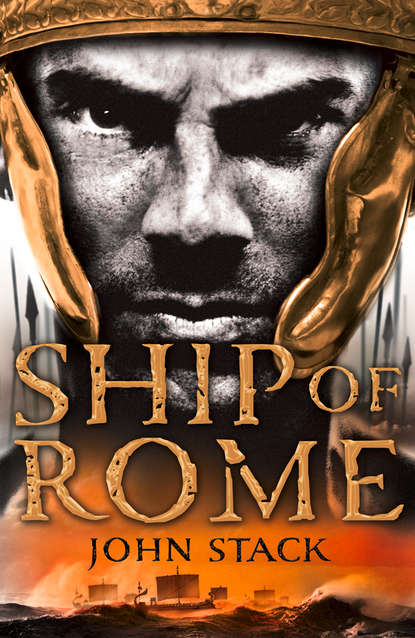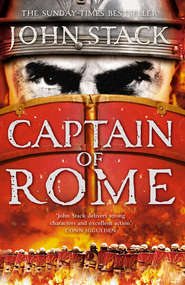По всем вопросам обращайтесь на: info@litportal.ru
(©) 2003-2024.
✖
Ship of Rome
Автор
Год написания книги
2019
Настройки чтения
Размер шрифта
Высота строк
Поля
The deck heeled violently as the Carthaginian galley withdrew her ram and many men fell on the inclined main deck. The entire sail was now aflame and the falling burning pieces overwhelmed the futile efforts of the crew. Melus looked past the burning main deck to the Carthaginian galley. She was resuming her course to the remaining transport barges behind the Onus, her crew cheering at the sight of the sinking Roman ship.
Melus held on to the tiller tightly as the deck continued to heel over under his feet, the Onus sinking rapidly by the bow. Bitter tears ran freely down his face as shame consumed him, shame for his cowardice, of calling down damnation on his fellow sailors in a bid to save his own life. A rage of frustration and regret overwhelmed him, for he knew he should have stayed on his collision course. The result would have been the complete destruction of the Onus, but Melus now realized their fate had been sealed the moment they sailed from Brolium only hours before. By turning his ship he had lost his only chance to exact some revenge from the Carthaginians for the destruction of his ship and crew, his only chance to send some of the enemy ahead of him to Hades.
The Melqart increased to attack speed as the helmsman sought out another target. Gisco looked around him at the carnage wrought by his fleet of twenty galleys. Some of his galleys were chasing barges as they attempted to break from the pack and escape, while others had sailed directly into the centre of the transport fleet, causing panic and collisions as they snapped at the heels of the larger vessels.
Gisco saw a knot of men in the sea ahead: Romans who had jumped from a burning vessel. They were keeping together, helping each other as their ship slipped beneath the waves not twenty feet away.
‘Helm, one point to starboard!’ Gisco ordered, the helmsman immediately seeing the intended target. He lined up the Melqart perfectly.
The ninety-ton galley bore down on the knot of men, one of their number suddenly seeing the approaching galley, his cries alerting the others. Hamilcar watched the enfolding scene without comment, despising the brutality of targeting helpless men in the water. Like all on board he had cheered as the Melqart had made her first kill, revelling in the destruction of the enemy fleet, praising Tanit, the Phoenician goddess of fortune, for the incredible stroke of fate that had delivered the Roman fleet into their hands.
The frantic pleas of the Romans were cut off as the Melqart struck, many of the archers on the aft-deck running to the stern rail, hoping for survivors. There were none. Hamilcar found himself watching Gisco as the admiral stared at the broken bodies of the Romans in the wake of his ship. He marvelled at the duality of the commander. He was an incredible seaman, the perfection of his trap and his ability to understand and outwit the Roman enemy testament to his skill. But he was also capable of incredible brutality, a burning, insatiable blood lust that demanded a heavy price from the enemy.
Hamilcar recalled the brief of his appointment, a shadow to extend the reach of the Council of Carthage to ensure there was no repeat of Gisco’s ignominious defeat at Agrigentum. It was a course that Hamilcar had often secretly questioned, wondering why Gisco had been allowed to retain his command. Only now, in the heat of battle, did he fully understand the Council’s logic. If Rome was to be defeated in Sicily, men with Gisco’s ruthlessness would be needed in every battle. In all its five-hundred-year history, Carthage had never relinquished a dominion to any enemy. Sicily could not become an exception.
Вы ознакомились с фрагментом книги.
Приобретайте полный текст книги у нашего партнера:
Приобретайте полный текст книги у нашего партнера:









